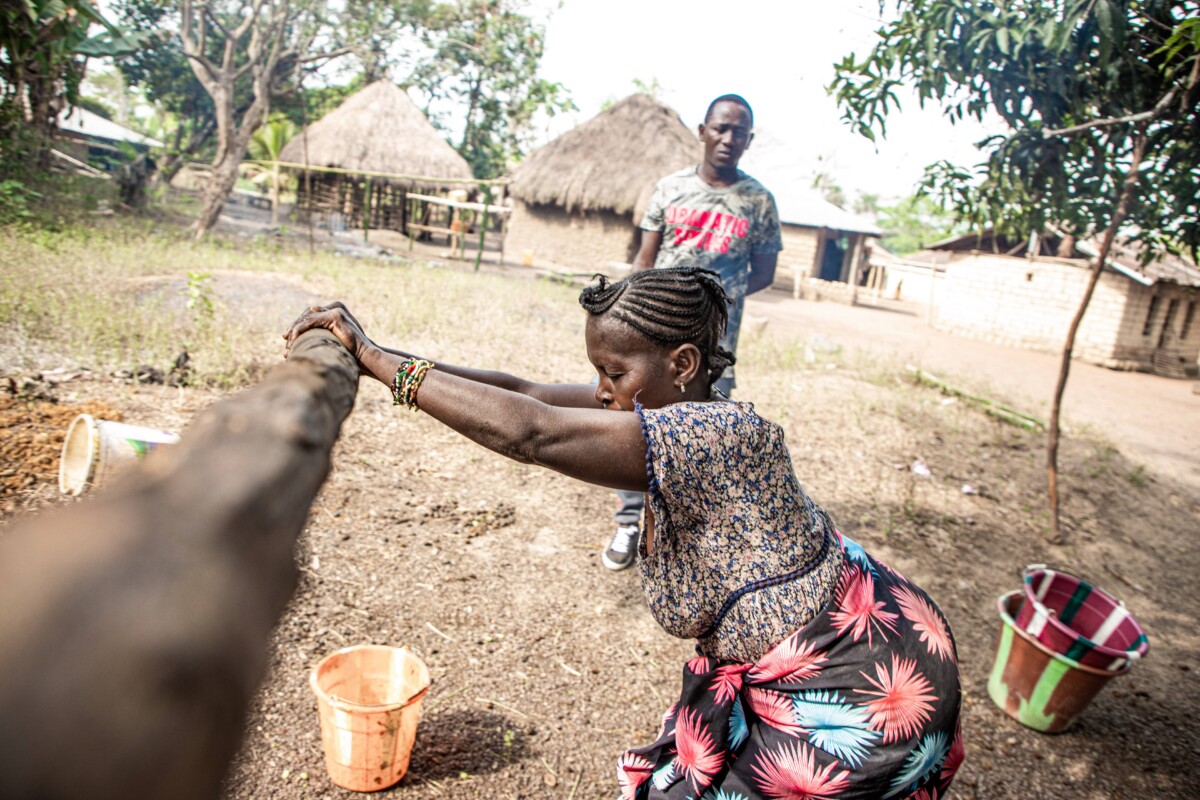
Project information
Start date: February 2023
End date: February 2026
Location: Pujehun, Sierra Leone
The Challenge
Sierra Leone remains one of the poorest countries in the world and people living in rural villages face the most extreme forms of poverty and injustice – 60% of people in rural areas live in poverty (World Bank 2020). Despite this, their needs are often neglected by decision-makers. Lack of access to basic services, such as clean water, health and education, is a major challenge to rural communities and has been exacerbated by a cost-of-living crisis with inflation reaching a 20 year high of 29% in September 2022.
Poverty is closely linked to the lack of opportunity, widening inequalities and the gap between those with power and those without. For example, just 35% of women are literate compared to 52% of men, with many girls forced to marry early which greatly reduces their access to education and employment. Violence and discrimination against women, young people and people with disabilities is common, leaving these groups more vulnerable to poverty and with little confidence to change their situation. They are also rarely represented in leadership positions, lack a voice to influence change and are excluded from the decisions affecting their daily lives.
Our project
Led by our local partners MAPCO and MUWODA, we will work with 4,000 people over three years through 30 small civil society organisations in rural Kenema and Pujehun districts to co-develop solutions to extreme poverty and challenge the root causes of injustice. The project will promote the rights of women, young people and people with disabilities, and support them into leadership positions to give them voice, power and control over local issues.
The 30 local organisations will also create new services to tackle poverty amongst their membership, including revolving loans for small business development; agricultural seed loans and training; vocational apprenticeships for young people; literacy training; and skills development on small business management and new digital technologies. 2,800 families will increase their household incomes by at least 30% by the end of the project as a result. The project builds on a model to strengthen community organisations (CBOs) through community-owned services which have proven to be highly effective in reducing poverty. In our most recent project, all of the 19 CBOs established are led by women.
Expected impact by the end of the project
- 30 community organisations will be providing services to 4,000 households to improve their incomes (70% women, 60% young people, 10% people with disabilities), benefitting 22,800 people in total.
- 2,800 families will have improved their household incomes by at least 30%
- 4,000 people and 240 local leaders with improved understanding of human rights, gender & disability rights
- 90 women, youth and disability champions influencing decision making and acting as role models
- At least 30 examples of improved leadership or decisions inclusive of women, youth and people with disabilities

